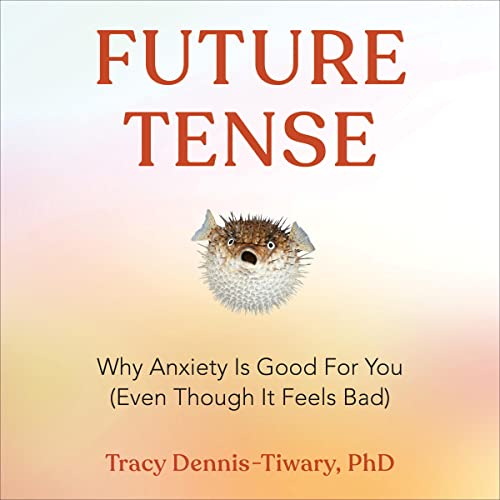
 Being that approximately 20% of US adults have reported having an anxiety disorder in the last year, and many more have experienced situational anxiety which they are trying to reduce, Tracy Dennis-Tiwary suggests it is time for us to redefine our relationship with anxiety. The thrust of Future Tense: Why Anxiety Is Good for You (Even Though It Feels Bad) is that we need to shift our mindset concerning anxiety: anxiety is not a health crisis, but the way we cope with anxiety can be and the ways we cope with anxiety are missed opportunities for growth and productivity.
Being that approximately 20% of US adults have reported having an anxiety disorder in the last year, and many more have experienced situational anxiety which they are trying to reduce, Tracy Dennis-Tiwary suggests it is time for us to redefine our relationship with anxiety. The thrust of Future Tense: Why Anxiety Is Good for You (Even Though It Feels Bad) is that we need to shift our mindset concerning anxiety: anxiety is not a health crisis, but the way we cope with anxiety can be and the ways we cope with anxiety are missed opportunities for growth and productivity.
As someone who has been managing anxiety for many years, I found this book incredibly useful in that it helped reframe some of the beliefs I hold about anxiety even though I have read widely on the topic. The author approaches this reframing from a variety of perspectives from evolution and neuroscience to the social history of the terminology and diagnoses. She deconstructs our modern views on anxiety, helps us understand how these views have emerged, and helps us reconstruct our relationship with this emotional feeling. The experience of anxiety is framed by our cultural context and place in history, and we are capable of reframing the way we interact with the contexts and shifting our experience.
The research presented here also helps to clarify research and undo common misunderstandings. In particular, she brings awareness to the idea that anxiety is not a simple basic emotion, but a complex one that integrates multiple cortical areas and occurs through a complicated interaction of fear and reasoning. It is here, in this interaction, that we are able to exercise some executive control that can either make the anxiety functional or dysfunctional. She also points to the importance of human connection in scaffolding the way we channel this executive control.
The discussions on parenting and electronic media are particularly enlightening and display a real connection with the reader. There are so many broad generalizations in our social interactions about the impact of electronic media on our emotional state and misleading suggestions for parenting, but Tracy offers a critical look into these as well. She explains the weakness of some of our popular arguments through descriptions of her personal experiences as she came to understand her anxieties and the anxieties of those around her better.
The text is emotionally engaging while intellectually rigorous as Tracy does an excellent job of interweaving research with both her personal stories as well as our shared experience surviving the pandemic and the current political upheavals. We come to understand how she has experienced anxiety in her life the dynamics of the experience and through past, present, and future reflections. Similarly, the studies presented are done in a way that allows us to participate in thinking about how we have undergone or might react in similar situations. Keeping with the trend of the book she helps us notice our current behavior and mindset and then walks us through potential alternative exercises. The studies she presents encourage reflection making the science accessible.
This book was a quick weekend read that takes you on an intellectual and emotional journey. It will help you not only understand yourself better but also better understand the age we live in by looking at how our approaches to anxiety are woven into our cultural dynamics today.





